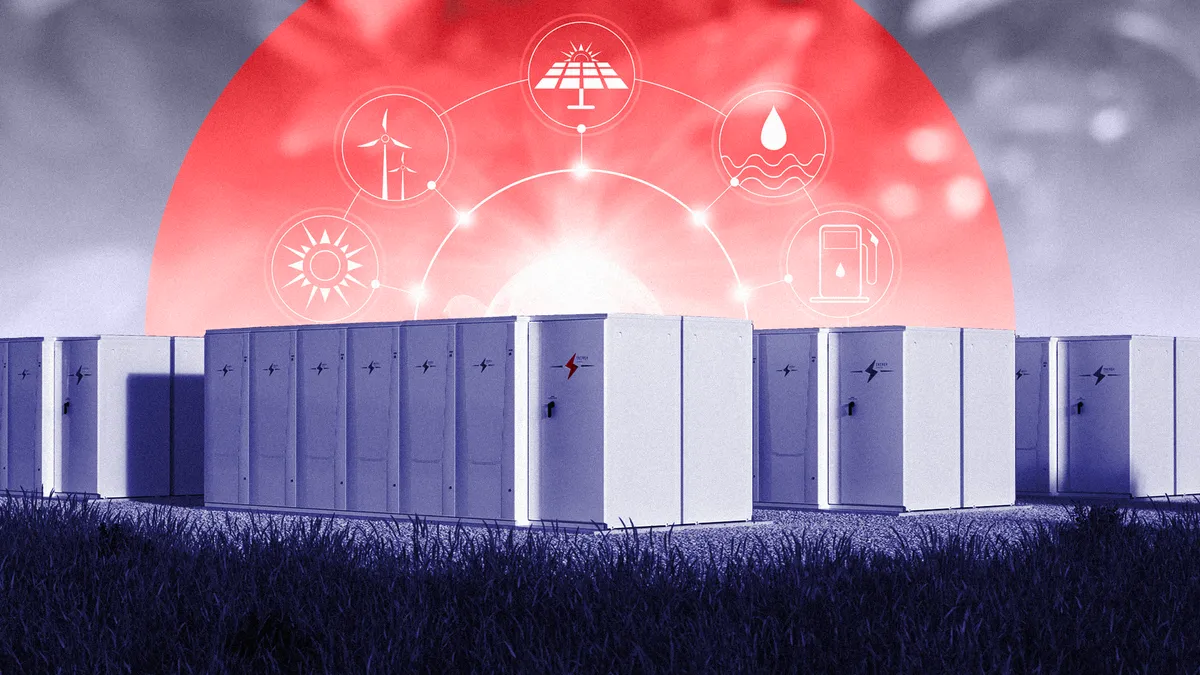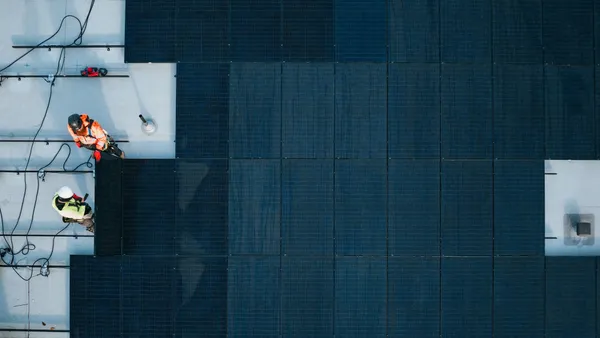Dive Brief:
- U.S.-based battery storage developer KORE Power has entered into an offtake agreement with Nidec North America to provide the latter with between 450 MWh and 600 MWh of lithium-ion battery cells, modules and racks in 2024, as part of a multi-year commitment, the company announced Thursday.
- Under the deal, KORE Power’s commitment could ramp up to 2.2 GWh of equipment cumulatively in 2026. In turn, Nidec will provide KORE with power conversion systems, which are used in energy storage devices, of between 225 megavolt-ampere to 1,100 MVA.
- KORE Power’s supply agreements tend to span about three years, and then get extended every year, Jay Bellows, the company’s president, said. “I think [this] agreement has the opportunity to be extended and most likely will,” he added.
Dive Insight:
KORE Power and Nidec have been working together for a while, Bellows noted. Last year, the company announced Nidec was part of its Series A Funding Round. In addition to supplying lithium-ion cells, modules and racks to Nidec, the agreement also includes jointly developing turnkey energy storage systems for utility-scale and commercial and industrial projects with KORE’s DC Block scalable storage solutions, and Nidec’s power conversion systems. The projects are likely to be located around the world.
There are a couple of different ways the companies can work together, Bellows said. On the one hand, KORE Power can provide batteries and battery management systems for energy storage systems that Nidec is building.
On the other hand, KORE Power has the ability to build entire energy storage systems itself, but the one piece it doesn’t do is power conversion equipment, which Nidec provides, Bellows said.
“So the relationship between Nidec and KORE could be as much as a total system, or as little as just the batteries,” he said.
The energy storage market more broadly has grown significantly in the last five years, from being based on projections to actuality, Bellows said.
“I think that even the projections that we’re seeing in the market — which are aggressive to say the least — are light [compared] to what energy storage is ultimately going to be,” he added.
Building out domestic supply chains for energy storage has been a key priority of the Biden administration. In February 2022, the U.S. Department of Energy announced plans to provide $2.91 billion to increase the production of advanced batteries for electric vehicles and stationary storage applications by funding plants that produce and refine battery materials as well as funding battery cell manufacturing facilities and recycling facilities.
KORE Power has been focused from the start on U.S.-based battery manufacturing, Bellows said. This is in part to avoid relying on other countries to deliver essential components of the energy storage systems.
The company is building a facility in Arizona to manufacture the cells and modules for its nickel manganese cobalt and lithium-ion iron phosphate batteries. KORE Power in June received a conditional commitment for an $850 million loan from the U.S. Department of Energy’s Loan Programs Office for the facility.
The facility is scheduled to begin commercial production at the end of 2024 or early 2025, and will have an initial annual production capacity of 6 GWh, with the potential to expand to 12 GWh down the line to meet market demand.
“The ability to do the entire system here for energy storage is a key differentiator between us and others,” Bellows said.















